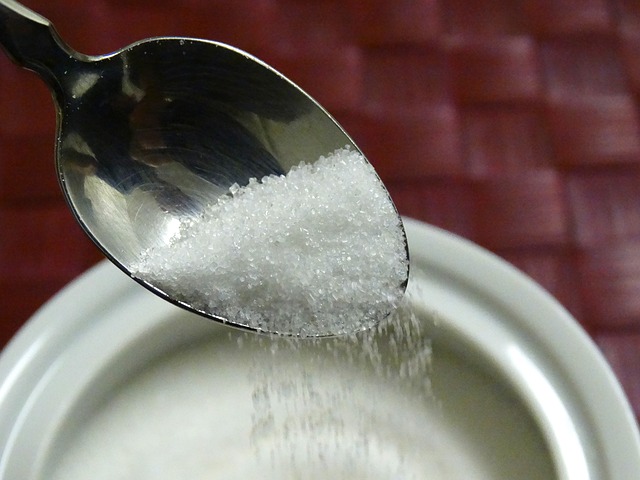5 Foods Scientists Claimed Cause Cancer, But Don’t

These days, it seems like even smiling causes cancer. Fortunately, there’s no conclusive evidence on that, but so many of our favorite things have been linked to cancer in one way or another, it couldn’t hurt to be cautious.
But science is also quick to revise their analysis, if you take any solace in that. Studies are often conducted to achieve a certain result, or sponsored by someone with a biased agenda. For instance, if I owned Splenda, it would benefit me to sponsor a test on the effects of Nutrasweet — especially if I chose rats that were genetically predisposed to cancer.
As you’ll see examples like the one above aren’t rare… in fact, that’s one of the literal examples below. Including that example, here are six things that the greatest scientific minds (or sometimes, just the uninformed masses) assumed to cause cancer, which were later dispelled as hokum.
1. Aspartame

You might know aspartame by a number of names: Nutrasweet, Equal, or simply just “that stuff that ruins my coffee.” But, according to an article written by JW Olney and published in the Journal of Neuropathology and Experimental Neurology in 1996, it was also the cause for the rising number of brain tumors between 1975 and 1992. Which is a funny coincidence, because aspartame only became a popular sweetener in diet colas and sugar-free gums starting in 1982.
In case you’re not a scientist or a mathematician, let me break it down for you: aspartame could not have caused tumors before it was commercially available. Also of note is that the rats in the study were exposed to the human equivalent of anywhere between 8 and 2,000 cans of soda daily. If that sounds like your diet, you might have bigger problems than cancer. Yet rumors have persisted, and the American Cancer Society even has a page dedicated to debunking the myth.
2. Genetically Modified Foods

Photo Credit: Lindsay Eyink
“Genetically Modified” is a very loaded term for a lot of political groups. But, strictly speaking, all food is genetically modified in one way or another—be it through natural selection, horticulture, or the heavy duty gene splicing happening on the mysterious island of Dr. Moreau. But it’s the latter that usually rankles people the most, as genes are inserted into a developing plant to enhance certain traits, creating a Genetically Modified Organism. Which, by the way, I’m still waiting for my freaking dragon.
These GMOs are perceived as unnatural and therefore unhealthy, but so far any link between GMOs and cancer is inconclusive. Molecular biologist Gilles-Eric Séralini even used rats that were genetically predisposed to cancer to try and sway popular opinion before a public vote to include GMO labeling on all non-organic foods. The Séralini Affair, as it’s since been dubbed, is one of the most notorious cases of abused scientific data and poorly constructed research in recent memory.
3. Drinking Cold Water After Meals

When it comes to linking things to cancer, the motto should be “the more innocuous, the better!” Even something as essential as water could turn into dreaded cancer. It’s like 80% of our cellular composition is out to get us. Fortunately, these people are incompetent boobs and the only time water can cause cancer is when you’re stirring it with a rod of Plutonium-239.
At any rate, this ode to pseudoscience began circulating on the internet in 2006, just in time to terrify your grandmother whose dialup modem you installed a week earlier. It still gets a little play now and then, its proponents arguing that cold water makes fats congeal in your intestines, which, you know, totally causes cancer somehow. Well, rest assured that your insides are better for drinking water at any temperature below scalding.
4. Fluoridated Water

Water fluoridation is one of the few times that a social service actually did some real freaking, undeniable good for the greater population. By adding a little fluoride to our drinking water, we cut down on the number of cavities in the population by decreasing the wearing away of natural enamel—and all without changing the water’s flavor. But anytime you add anything to anything, people are sure that cancer is lurking just around the corner. Fears were confirmed with a study conducted by the National Toxicology Program in 1990, which found increased incidents of bone tumors in fluoridated rats. Since then, however, the test has been repeated over 50 times and found no link between cancer and fluoridated water. What caused the increase in 1990 study, then? Statistical anomaly. And the fact that the study was conducted in Chernobyl. (That last part is not true.)
5. Cooking with a Microwave

I mean, if you can’t see it, it’s probably cancer… right? That’s the basic logic underlying this urban legend, either claiming that the microwaves give off excess radiation or add a little nuclear flavor to your microwave burritos. Scientist Hans Hertel tested the theory by locking a bunch of his buddies in a hotel room to eat nothing but vegetables and milk heated in a microwave. Two weeks later he popped his head out of that fart barrel and released the damning info: the men’s blood work exhibited signs of early cancer activity. But this study was done in an unsupervised manner, not published in a scholarly journal, and didn’t prove any conclusive link between their activity and cancer.
Other (respected, less flatulent) scientists maintain that the low-level, non-ionizing power emitted by microwaves just doesn’t have the power to alter anyone’s DNA. Again, the helpful folks at the American Cancer Society has an entire page dedicated to quelling your fears on this non-threatening appliance. The page also covers cell phones, radio waves and full-body security scanners, so crackpots beware.






















